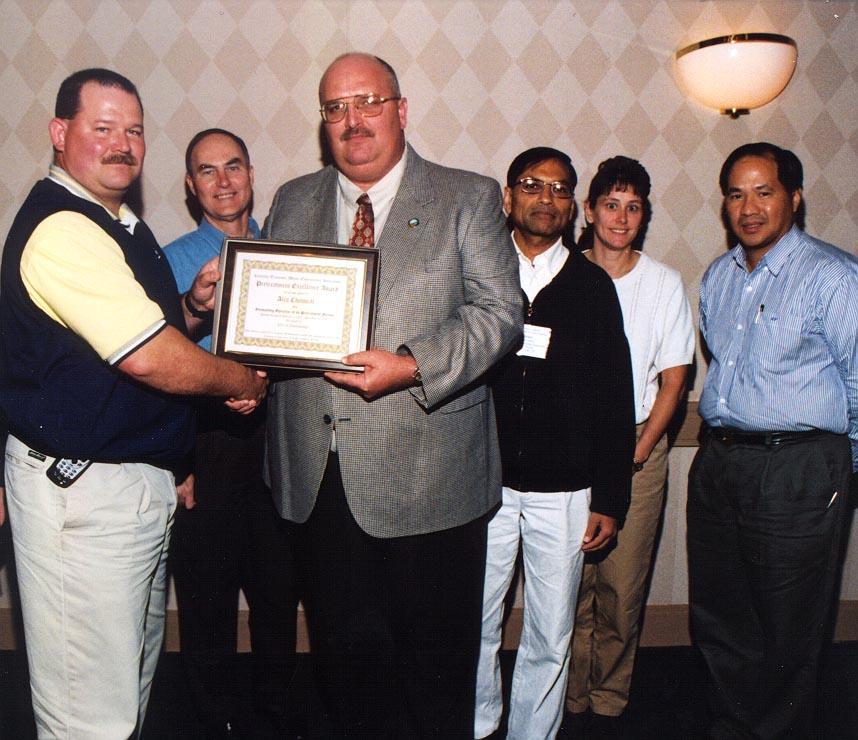Pretreatment Program Overview
The Environmental Protection Agency (EPA) requires that a publicly-owned treatment works (POTW) facility with a total design flow greater than five million gallons a day (mgd) receiving pollutants from industrial users which could pass through and/or interfere with the operation of the POTW develop and implement a Pretreatment Program.
Purpose of the Pretreatment Program
The primary purpose of the Pretreatment Program is to protect the operational performance of the wastewater treatment facility and the water quality of the receiving stream through control limits on industry discharges into the sewer collection system. Industries must meet specific wastewater constituent limits in their discharge before a permit is issued by the City.
The Pretreatment section:
Issues permits to industrial wastewater dischargers
Samples permitted dischargers
Ensures compliance with all laws and regulations
Sample data collected by the pretreatment section are used in the calculation of surcharge fees.
History and Recognition
Responsibilities
The Industrial Pretreatment Program is responsible for:
Noncompliance occurs when any discharge regulation is violated. Regulations are outlined in the City Code, Chapter 31, Section 31:51-52. Illegal discharges should be reported to the City of Chattanooga POTW.
Pretreatment Permits
Issued to significant industrial users under City Code, Chapter 31, Section 31:53-54.
Normally issued for a three year period
Contain all local, state, and federal pretreatment standards that apply
Currently, 80 permits have been issued to significant users. Types of industries represented include:
Permit applications may be printed off, filled out, and mailed to:
City of Chattanooga, Moccasin Bend Wastewater Treatment Plant
455 Moccasin Bend Road, Chattanooga, TN 37405
Environmental Compliance and Water Quality Programs
River Monitoring
- Weekly river monitoring program to determine the impact of the activities of Moccasin Bend Wastewater Treatment Plant
- River samples are collected from the Tennessee River upstream and downstream from the treatment plant outfall
Fats, Oils, and Grease (FOG) Control Program
- Inspects all food service establishments to ensure proper removal of Fats, Oils, and Grease wastes
- Primary purpose is to prevent sanitary sewer system blockages, obstructions, and overflows due to FOG
Residential FOG Best Practices include:
- Don’t wash food scraps down the drain, dump them in the toilet, or grind them up in the garbage disposal
- Use mesh drain strainers to catch solid food scraps for disposal in a trash can
- Pour liquid food scraps such as sauces into a container and place in the trash can
- Don’t use water to "pre-wash" plates; scrape plates over the trash can or dry wipe with a paper towel
- Don’t pour used oil down the drain; pour used oil into a container with a top for reuse, recycling, or disposal in the trash can
- Don’t pour hot grease down the drain; pour cooled grease into a grease can or other container for disposal, or wait until the grease cools and absorb it with paper towels or newspaper for disposal in the trash
Enforcement Response Plan
- Outlined in the City Code, Chapter 31
- Enforcement actions taken as a result of noncompliance by industrial facilities
Industrial Awards
The City's Pretreatment Program presents an Industrial Pretreatment Excellence Award annually to an industrial user that had no violations the previous calendar year and has exhibited excellent performance in the treatment of industrial wastewater.
Image

Helpful Resources
- CLOG Residential FOG Brochure
- FOG Control Brochure
- FOG Control Education Commercial and Residential Example for Chattanooga
- FOG Prevention Poster (English)
- FOG Prevention Poster (Spanish)
- Fat-Free Sewers
- Drug Free Drains
- Sewer Grease Blockage Notification Door Hanger
- EPA Wastewater Collection System Toolbox